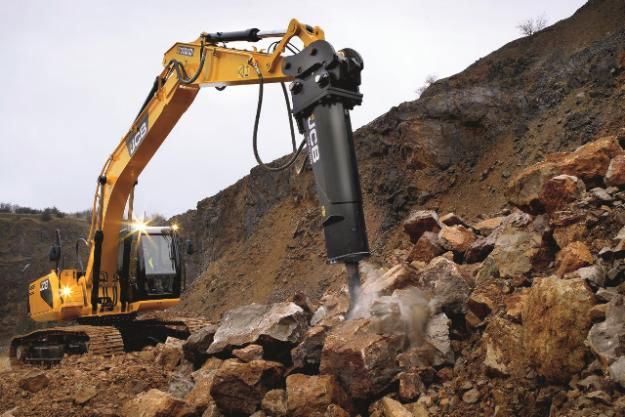Comprehensive Excavation Approaches: Mastering the Principles for Success
In the world of building and civil design, the relevance of reliable excavation approaches can not be overstated. The careful preparation, exact implementation, and meticulous attention to detail required in excavation jobs require an extensive technique that includes different essential aspects. From initial soil analysis to the implementation of security procedures and regular development surveillance, grasping these core aspects is essential for attaining success in any excavation endeavor. The real mastery exists not just in recognizing these principles yet in flawlessly incorporating them to browse the intricacies of excavation jobs with finesse.
Recognizing Excavation Job Planning

The initial phase of any kind of excavation task is the preparation phase, where crucial decisions are made that can dramatically influence the outcome of the project. Comprehending the task timeline, range, and spending plan restrictions is crucial for producing a detailed excavation strategy that ensures the job's success.
One trick facet of excavation project preparation is the growth of a comprehensive timeline that details the series of deadlines, tasks, and milestones. This timeline acts as a roadmap for the project group, allowing them to track progress and make needed adjustments to make sure the task remains on routine. In addition, a distinct budget that accounts for all expenditures, consisting of equipment rental, labor prices, and materials, is necessary for preventing expense overruns and delays. By meticulously taking into consideration all these variables throughout the drawing board, excavation tasks can be implemented successfully and properly, leading to effective results.
Soil Analysis and Website Analysis
Carrying out complete soil analysis and website assessment is a crucial action in the preparation stage of any type of excavation task. Soil evaluation entails determining the structure, structure, and residential properties of the soil at the excavation site. This details is vital for comprehending the dirt's bearing capacity, wetness content, and capacity for disintegration, which are crucial consider identifying the excavation techniques and devices required for the job.
Website analysis exceeds dirt evaluation and encompasses a wider evaluation of the general website problems. This examination consists of recognizing any kind of possible threats, such as below ground energies, ecological worries, or unpredictable surface, that might affect the excavation process. By completely examining the site, job managers can establish effective excavation techniques that prioritize safety, effectiveness, and environmental protection.
Utilizing advanced technologies like ground-penetrating radar, soil tasting, and drone studies can boost the precision and efficiency of soil analysis and website assessment. Investing time and resources in these initial actions can eventually save time and avoid costly hold-ups or difficulties throughout the excavation process.
Equipment Selection and Usage
Efficient excavation tasks rely greatly on calculated equipment choice and application to make certain optimum efficiency and productivity. Choosing the right tools for the job is important in maximizing performance and reducing downtime. Factors such as the kind of soil, deepness of excavation, and job scope play a significant duty in establishing one of the most appropriate devices for the job available.

Along with choosing the proper tools, appropriate usage is essential to project success. Operators must be educated to deal with the devices securely and successfully - lancaster excavation. Regular upkeep checks and prompt repairs assist avoid malfunctions and ensure constant efficiency throughout the task
Safety And Security Procedures and Rules Compliance
In the realm of excavation projects, prioritizing security procedures and conformity with policies is paramount to guaranteeing a legitimately sound and secure functional setting. Security measures incorporate a series of practices, consisting of carrying out detailed website assessments, implementing correct signage and barriers, and providing ample safety and security training for all workers involved in the excavation procedure. Adherence to policies, such as OSHA requirements weblink in the USA, guarantees that the excavation task satisfies the necessary criteria to safeguard employees, onlookers, and the surrounding environment.

Tracking Development and Adjusting Approaches
Just how can predict supervisors properly track the improvement of excavation jobs and adapt their strategies as necessary to enhance results? Monitoring progress is essential for making certain that excavation tasks stay on track and meet target dates. Job managers can make use of various devices and strategies to next page track progression, such as everyday report card, normal website assessments, and progressed surveillance modern technologies like drones and general practitioners tracking systems. By continually checking the task's advancement, managers can identify any prospective delays or issues early on and take aggressive measures to address them.
Conclusion
In final thought, understanding the principles of extensive excavation approaches is crucial for the success of any kind of task. By recognizing job planning, assessing soil and site problems, selecting ideal devices, adhering to safety laws, and keeping an eye on progress, job managers can make certain a reliable and smooth excavation process. Implementing these methods will cause successful outcomes and lessen potential threats or problems during the excavation job.
The initial stage of any kind of excavation job is the planning stage, where critical choices are made that can significantly affect the end result of the project. Comprehending the task timeline, extent, and budget plan restraints is important for developing an extensive excavation strategy that ensures the task's success.
Exactly how can you can look here project managers successfully track the innovation of excavation jobs and adapt their approaches accordingly to maximize results? By closely monitoring development and being willing to adapt approaches, project supervisors can boost the overall success of excavation tasks.
By understanding job planning, analyzing soil and site problems, selecting ideal devices, abiding with safety policies, and keeping track of development, project managers can guarantee a effective and smooth excavation process.
Comments on “Budget Friendly Lancaster Excavation - Quality Excavation at Competitive Prices”